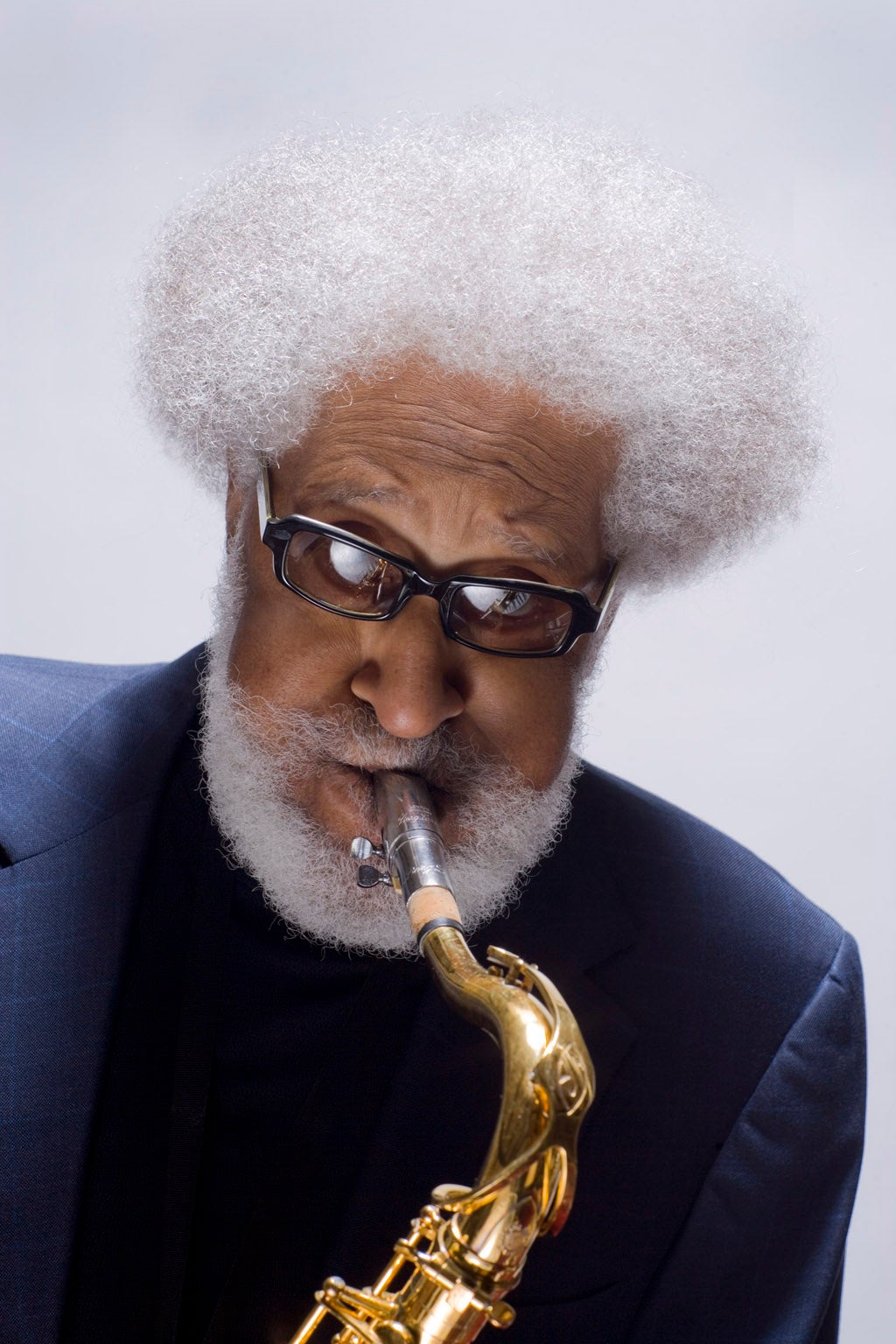
The young giants who gathered round Charlie Parker to reconfigure jazz in 1940s New York are nearly all gone.
Sonny Rollins takes being reminded of the fact with a mixture of boredom (he hardly needs telling he’s 82, with few peers left alive), and the responsibility which has defined a career broken by sabbaticals to searchingly rethink how he plays the tenor sax. He knows he’s a breathing embodiment of an iconic generation. But he’s no holy relic. He’s still in this instead to play as well as he can, every night.
There’s a sense of great expectation before Rollins makes a painful, crabbed shuffle onto the stage. Back stooped, he’s had to marshal all his physical resources to stand here and deliver. A tuft of his cloud of white hair blows as he moves towards his attentive band, fists gently conducting “St. Thomas”’s swinging calypso. His back straightens then bows deeply during his first solo - lyrical, then punched phrases, then fast ripples of notes, any musical infirmity defiantly shrugged off.
On “JJ”, Clifton Anderson’s trombone is deep-toned support to Rollins, suggesting some old Hollywood score, after which things get hard and fast for “Nishi”. Here Rollins breaks his playing into half-phrases, sometimes barely a note, alternating with exuberant cascades from drummer Kobie Watkins.
Which is all very well. But then suddenly the band’s music parts, and Sonny Rollins plays alone. It’s a romantic, full sound, with brief, breathy byways and barks. “Hey, watcha doin’, watcha doin’?” the New Yorker characteristically chides himself when his sax won’t go where he wants. He shakes his head in disappointment during the applause, his aim always out of reach.
During the samba that follows he looms over the front row, seeming to actually grow into the saxophone colossus a 1950s album dubbed him, turning a near-novelty tune into a personal canvas for rapidly explored ideas and feelings. After 90 minutes, as if running into some invisible barrier, he stops.
This wasn’t one of those Rollins nights where people talk of solos of limitless length and potency. Nor was it some miraculous return to his youth. The point of a great musician in old age is to hear what they find there, straining against new limits. The continuing miracle of Rollins’ charismatic, distilled, questing solos in the precious minutes when he sought his latest destination was thrilling.
Subscribe to Independent Premium to bookmark this article
Want to bookmark your favourite articles and stories to read or reference later? Start your Independent Premium subscription today.

Join our commenting forum
Join thought-provoking conversations, follow other Independent readers and see their replies